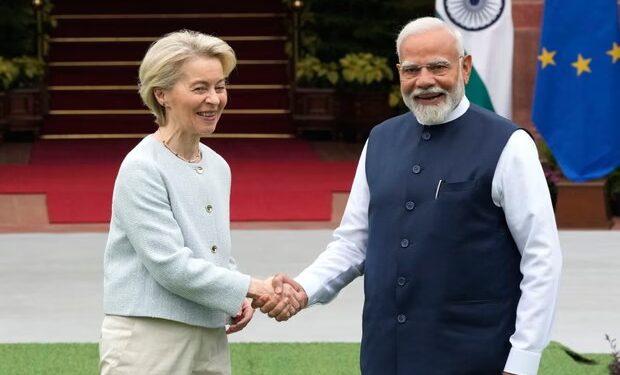The European Union is pushing ahead with plans to deepen cooperation with India even as New Delhi’s close relationship with Moscow, including participation in Russian military exercises and continued oil imports, raises concern in Brussels.
Military drills spark concern
EU foreign policy chief Kaja Kallas voiced alarm after India sent troops to take part in Russia’s Zapad military exercises. European leaders view these drills, staged near NATO borders, as an “existential threat” to the bloc’s security. The EU has questioned how India can signal its desire for closer ties with Europe while simultaneously joining military activities it considers provocative.
Energy and trade tensions
Another major obstacle is India’s continued purchase of discounted Russian oil, which European officials argue undermines Western sanctions and efforts to isolate Moscow over its war in Ukraine. Although the EU acknowledges India’s longstanding ties with Russia, leaders warn that these actions complicate the path to stronger strategic cooperation.
Building an EU-India agenda
Despite these frictions, Brussels is pressing forward with a new strategy to expand ties with India across trade, defence, technology, clean energy, and supply chain security. Negotiations on a free trade agreement, launched in 2022, are expected to conclude by the end of 2025. The EU notes that bilateral trade has grown sharply in the past decade, making India one of its most important partners for investment and commerce.
Balancing principles and pragmatism
EU officials stress that any deepening of ties must also be grounded in shared values and a commitment to the rules-based international order. Participation in Russian military drills and oil purchases, they argue, remain serious hurdles. At the same time, Brussels is cautious not to push India into a binary choice, recognising the depth of its historic relationship with Moscow. Instead, the EU seeks a gradual alignment of interests that better reflects European security concerns.
What lies ahead
If the trade agreement is finalised as planned, both sides stand to gain economically, with new opportunities in technology, green energy and infrastructure. Yet the challenge remains whether Europe and India can bridge their differences on Russia. For Brussels, the question is whether New Delhi can balance its partnerships in a way that does not compromise the EU’s security priorities.
Newshub Editorial, 18 September 2025



Recent Comments